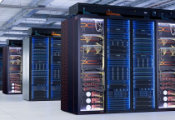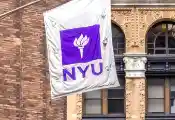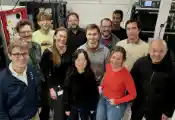Mizzou Establishes IBM Quantum Innovation Center
December 03, 2024 -- The University of Missouri has joined the IBM Quantum Network, and established the state’s first IBM Quantum Innovation Center to provide researchers and institutions with access to advanced quantum computing through IBM’s cloud-based platform.
Launching this innovation center positions Mizzou as one of more than 250 international members of the IBM Quantum Network, spanning universities, organizations, research laboratories and startups. The initiative is spearheaded by leaders and faculty from Mizzou’s College of Arts and Science and College of Engineering who will use the technology to advance groundbreaking research. It’s also a joint effort with the MU Division of Information Technology, which will play an integral role of helping prepare Mizzou’s users to take advantage of IBM’s quantum systems over the cloud.
“The College of Arts and Science, home of the state’s first IBM Quantum Innovation Center, will lead MU in investing in the power of quantum computing to unlock unprecedented computational abilities to tackle complex challenges, drive innovation and inspire the next generation of researchers,” said Cooper Drury, dean of the college. “Our IBM Quantum Innovation Center will bring together our faculty expertise with the most sophisticated technologies to drive research and teaching on a range of topics, including energy innovation and artificial intelligence.”
A rapidly emerging technology
Quantum computers operate fundamentally differently than traditional computers. Rather than relying on standard bits, they use quantum bits, or qubits, to process and solve complex problems exponentially, and could soon be capable of solving certain problems faster than even the most powerful supercomputers.
Although quantum computers aren’t expected to replace regular computers for everyday tasks, they are emerging as vital tools for tackling challenges that traditional computers cannot handle efficiently.
“Quantum computing is poised to revolutionize fields from materials science to machine learning, health care and life sciences, and Mizzou’s College of Engineering is leading the charge in this space,” said Marisa Chrysochoou, dean of the college. “Our IBM Quantum Innovation Center will be a critical hub for advancing research and preparing our students and faculty to drive innovation in this rapidly evolving field.”
Mizzou’s partnership with IBM provides organizations the opportunity to access IBM’s cloud-based quantum computing systems, along with Qiskit, the world’s most popular software stack for quantum computing, the IBM Learning Portal, and support from IBM’s quantum team.
Practical applications
A cohort of faculty has been selected to start using the technology immediately. Engineering researchers will use quantum computing power to study topics such as quantum programming, and semiconductors. Researchers from the College of Arts and Science will leverage the IBM partnership to study condensed matter and advance work in computational biophysics.
Chi-Ren Shyu, a professor of electrical engineering and computer science, encouraged other Mizzou researchers to also take advantage of the quantum computing resource. He stressed that faculty members don’t need to be experts in quantum physics to benefit from the technology.
“The key takeaway is that access to advanced quantum computing resources brings capabilities not currently found on campus or in the region,” Shyu said. “Quantum computers use quantum mechanics to calculate probabilities, allowing them to explore yet undiscovered computational territory that is inaccessible or very difficult for classical computers. This approach may not always yield an exact answer, but for many applications, a small margin of error is a fair trade for the extraordinary speed advantage. Certain tasks that could take years to solve with classical supercomputers could be completed in just hours using future quantum computers.”
He added that MU will build a robust quantum ecosystem through research initiatives, student education, and workforce development.



































